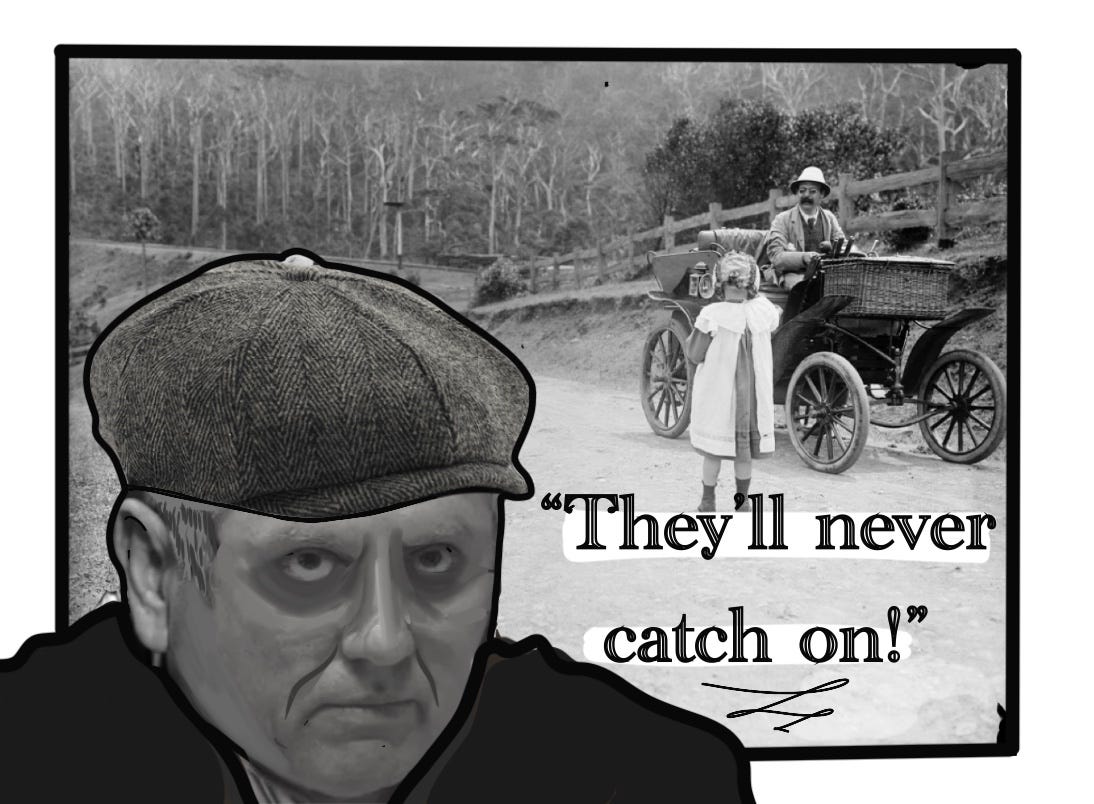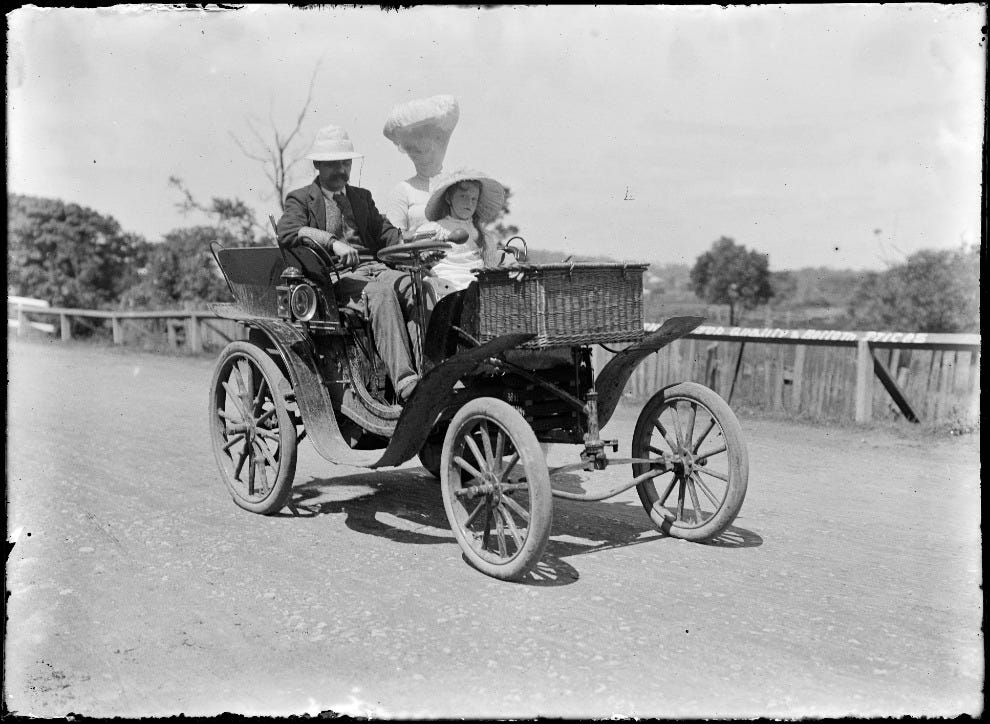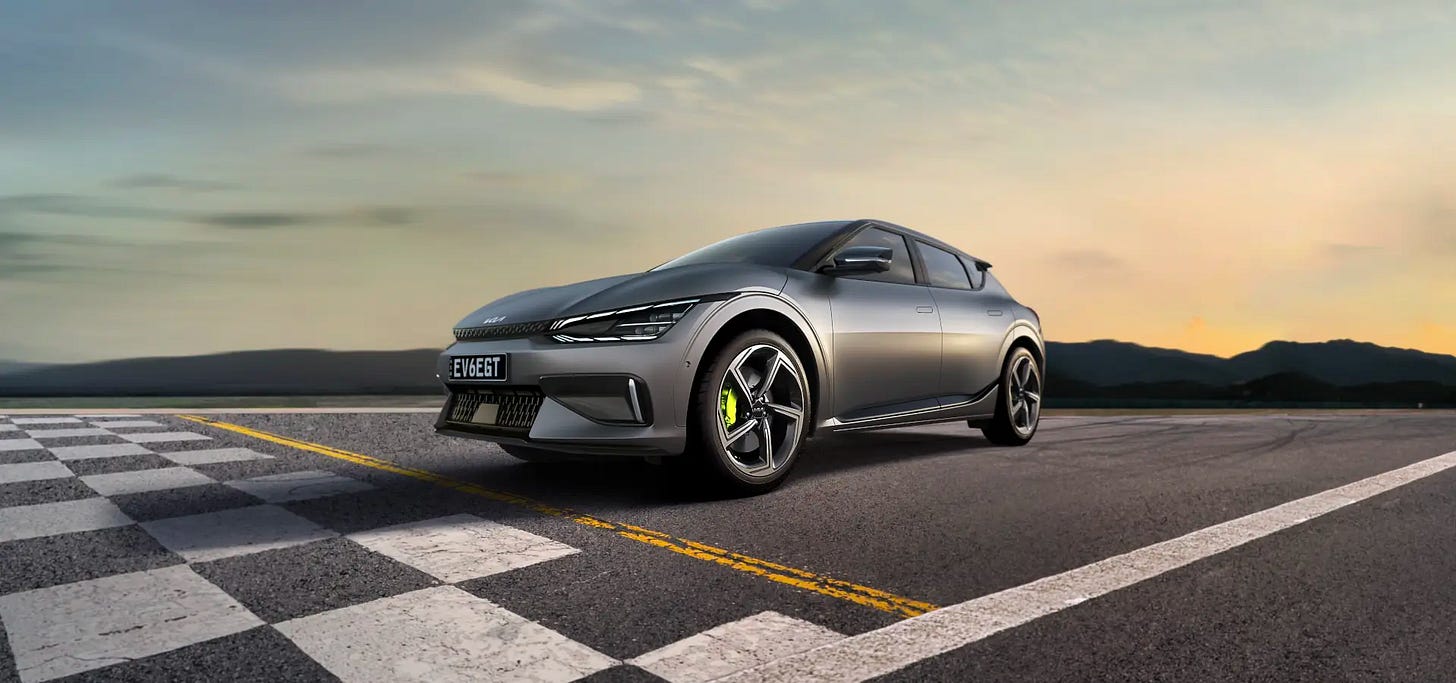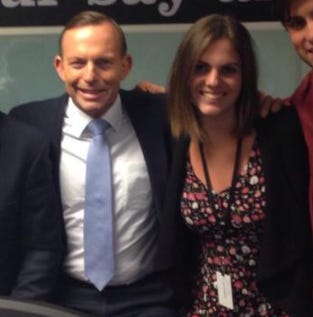My time at 2GB, shock jocks on EVs, and other dinosaurs who got it wrong.
I respond to Ray Hadley's spray on electric vehicles.
My first real job in the media was working as a producer for right-wing talkback radio station 2GB.
It was a very formative job. I was taught to be a good story chaser, an emotive writer, and decisive under pressure. I also got very good at ignoring fiddly things like “facts” and “balance” in order to create compelling narratives.
I — and everyone else — was working to an unofficial slogan: we don’t make people think, we make them feel.
And the easiest emotion to trigger in our boomer-dense audience? OUTRAGE.
So we, a producing team of morally-compromised 20-somethings, pushed that button like trained monkeys expecting a treat.
(The treat ended up being some kind of ongoing autoimmune arthritis triggered by stress. I probably deserved it.)
I largely ignore 2GB these days. Being that angry all the time is exhausting. For the hosts, the producers, the audience, and anyone who pays them attention.
But I couldn’t help seeing that Ray Hadley blundered into the EV conversation again last week.
On some level it’s nice to hear Hadley’s repertoire has grown.
Once you’d only hear him talking about cars if a truck was stuck in the Eastern Distributor tunnel. Or if someone had clogged up Galston Gorge near his house.
I think those poor, hapless truck drivers were his favourite topic. He walks like Lurch, Hadley. But on the trucks-blocking-traffic days he had a bit more bounce in his step. Still like Lurch, but Lurch on his way to a picnic perhaps.
So last week (presumably because no trucks were stuck where they shouldn’t be) Hadley did a bit of research on where the electricity which powers EVs comes from.
“Coal and gas are generating on a Sunday night 70.35 per cent of Australia's electricity while wind-slash-solar are producing 19.45 per cent,” he said.
“Where do you think most of the power to charge your car came from, Casanova? Well, about 70 per cent came from coal or gas”
If you’re wondering who Hadley’s referring to here, he’s taken to calling Energy Minister Chris Bowen Casanova Bowen for some reason.
Sick burn, Dorothy Parker.
This wasn’t a particularly coherent spray, but I believe he was trying for a gotcha moment regarding EVs being partially powered by non-renewable energy.
Frankly, I don’t want to waste time talking about the environmental impact of EVs versus internal combustion engine (or ICE) cars. But suffice to say there’s ample research showing cars powered entirely by oil-fired electricity still have less impact on the environment than those which use petrol.
When you add that to the fact that around 30-36% of our power is coming from renewable sources (depending on the time of day), and that an increasing number of homeowners are using personal solar panels and batteries to charge their cars, then we’ve got a reasonable case for EVs.
But – for a moment – allow me to say fuck the environment.
Yes! Fuck it!
Mother nature gave us cockroaches and earwigs, so let’s have our own back. I’ll drive my diesel-guzzling car until it gets old, then I’ll set fire to it using crude oil and buy another one twice as big. Then I’ll roll up a pygmy possums, smoke it like a cigarette and stub the ashes out on a baby koala. You can do the same thing! We all can!
But guess what? Electric cars are still here to stay. Why? Because big corporations have decided so.
Jaguar, Land Rover, Fiat, Volvo, Lexus, Audi, Mitsubishi and fucking Bentley are all committing to be fully electric by 2035. Most of the other main players are pushing for EVs to be 50-75% of their car sales in the next decade.
The people in charge of these companies aren’t hippies. They haven’t made this decision after communing with nature on a mushroom trip. They’re brutal realists who make billion dollar decisions based on cold, hard maths, market projections, and expert opinion.
And if Australians think they’re wrong? Tough tits. Our local car manufacturing industry was killed in 2013 when the Prime Minister at the time Tony Abbott decided to cut their Government subsidies. The Holden factory in Adelaide is now a mushroom farm.
So yes, at the moment electric cars can be a ball-ache.
As I discovered recently charging stations can be both patchy and badly run, there’s a lot of tribalistic negativity against EV cars, and “range anxiety” (as its been dubbed) puts people off longer roadtrips.
But history is a circle and we have been here before.
The first cars – or horseless carts as they were known – were being heavily scrutinised in the early 1900s. Had talk back radio and Ray Hadley existed 120 years ago I suspect he would have raged against them. Many people did.

Early car adopters were ridiculed. People on the side of the road would shout “get a horse!” as they drove past. Some would even throw rocks at their windshields.
It’s not surprising the public didn’t like cars. They were too fast! Too noisy! Too expensive! Too scary! They were also completely impractical.
After all, you could rely on your horse for a long journey. Sure, you both would need to eat and sleep at some point, but there were inns and stables to help with that.
But cars? Not so easy. Because there were no petrol stations gasoline had to be purchased in drug stores and carried along for the journey. If you ran out? Well. You were stuck.
A concern I suspect many EV drivers can relate to. This too will be fixed.

My point is that for as long as there has been change, there have been people shouting into the wind about it.
Frankly, believing EVs are some kooky left-wing political conspiracy or an unlikely pipedream imagined by environmentalists is ridiculous. What we’re actually talking about are unilateral decisions being made by the likes of Tata Motors, Volkswagen, and the Toyota Group.
What you’re looking at is business. It’s also the future.
If you don’t like it, perhaps you should buy a horse.




